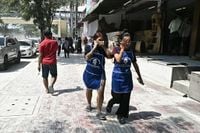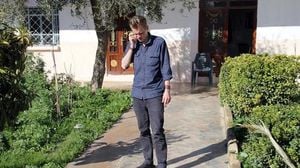On March 28, 2025, Southeast Asia was rocked by a devastating earthquake measuring 7.7 on the Richter scale, with its epicenter located in central Myanmar. The tremor triggered widespread destruction and panic, affecting not only Myanmar but also neighboring countries like Thailand, Vietnam, and China. In Bangkok, the capital of Thailand, a skyscraper collapsed, leading to multiple casualties and extensive damage.
The Thai Prime Minister, Paetongtarn Shinawatra, swiftly declared a state of emergency for Bangkok in response to the disaster. The situation escalated as reports emerged of a second earthquake, measuring 6.4, occurring just 12 minutes after the initial quake, further heightening fears of aftershocks and complicating rescue efforts.
In Myanmar, the junta reported at least 144 fatalities and 732 injuries as of the same day, with the toll expected to rise. The destruction was particularly severe in Mandalay, where nearly every building suffered damage. Eyewitness accounts detailed chaotic scenes as people fled their homes during the tremors, and significant infrastructure, including hospitals and government buildings, was compromised.
As rescue operations commenced, the Red Cross mobilized teams to provide medical assistance and search for missing persons in the hardest-hit regions of Mandalay, Sagaing, and Naypyitaw. A spokesperson for the organization noted that collapsed infrastructure and communication disruptions severely hampered their efforts. "The damage is immense, and we are working diligently to assess the situation and provide aid where it is most needed," the spokesperson stated.
In Bangkok, the collapse of an apartment complex under construction led to reports of at least five confirmed deaths, with 117 individuals still unaccounted for. Rescue teams were deployed to search the debris for survivors, as the prime minister visited the site to assess the damage firsthand. "We are doing everything we can to assist those affected by this tragedy," Shinawatra remarked during her visit.
Amidst the chaos, the Thai government reassured citizens and tourists that flights to and from Bangkok remained operational, although the situation was described as serious. The vice-premier, Charnvirakul, clarified that while a state of emergency was not declared for Bangkok, the city was designated a disaster area. Travelers were advised to stay updated with local authorities for any travel advisories.
As the earthquake's impact unfolded, reports surfaced of additional casualties in Myanmar, including two deaths in Bangkok and three fatalities due to the collapse of a mosque in Taungoo. The Red Cross and other humanitarian organizations prepared to distribute essential supplies, including food, blankets, and hygiene kits, to those displaced by the disaster.
In Naypyitaw, the capital of Myanmar, a hospital's first-aid department partially collapsed, forcing medical staff to treat patients outdoors. Footage captured the chaos as rescue workers navigated the rubble, striving to reach those trapped beneath the debris. "We are witnessing the scale of devastation that is hard to comprehend," said a rescue worker involved in the operations.
As the day progressed, the extent of the earthquake's destruction in Mandalay became increasingly apparent. Buildings around the national parliament and military headquarters crumbled, and reports indicated that a traffic control tower at Naypyitaw's airport collapsed, claiming the lives of all personnel on duty at the time.
International responses began to materialize as the junta in Myanmar called for assistance, citing a need for blood donations and medical supplies. The World Health Organization (WHO) announced preparations to send aid, focusing on essential medications and medical equipment to treat the injured.
In the midst of the unfolding crisis, many travelers, including a few thousand Dutch tourists, were reported to be in the affected areas. The Dutch Ministry of Foreign Affairs stated they had not yet received any requests for consular assistance, though family members expressed concern for their loved ones. "We are monitoring the situation closely and are prepared to assist if needed," a spokesperson for the ministry confirmed.
Eyewitness accounts from Bangkok provided a glimpse into the panic experienced during the earthquake. Frank Huckriede, a tourist from Hengelo, described the experience as "pretty scary". He recounted how the hotel he was staying in swayed like a Jenga tower, prompting guests to rush outside in fear. "People were running in panic, trying to find safety," he recalled.
The aftermath of the earthquake continues to unfold, with rescue operations ongoing and the full extent of the damage yet to be determined. Aid organizations are working tirelessly to address the immediate needs of those affected, while governments and international agencies prepare to respond to the long-term challenges posed by this catastrophic event.
As Southeast Asia grapples with the repercussions of this natural disaster, the resilience of its people and the dedication of aid workers will be crucial in the coming days. The situation remains fluid, and updates will be provided as more information becomes available.







